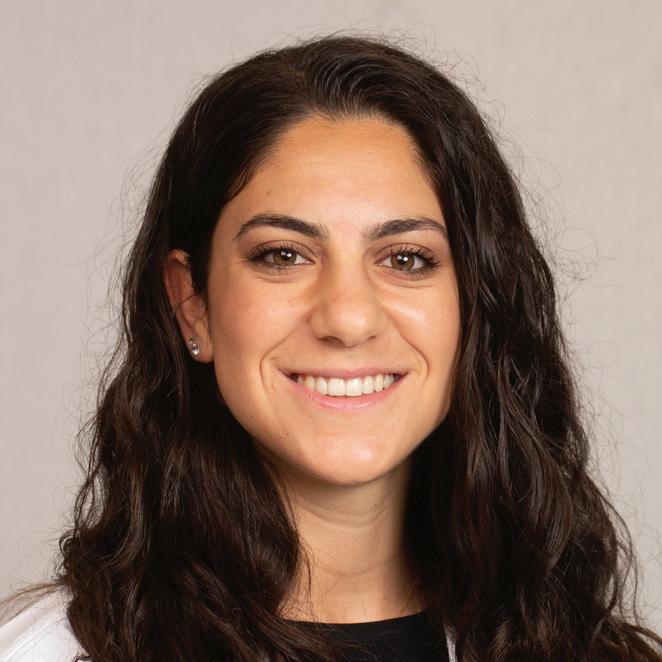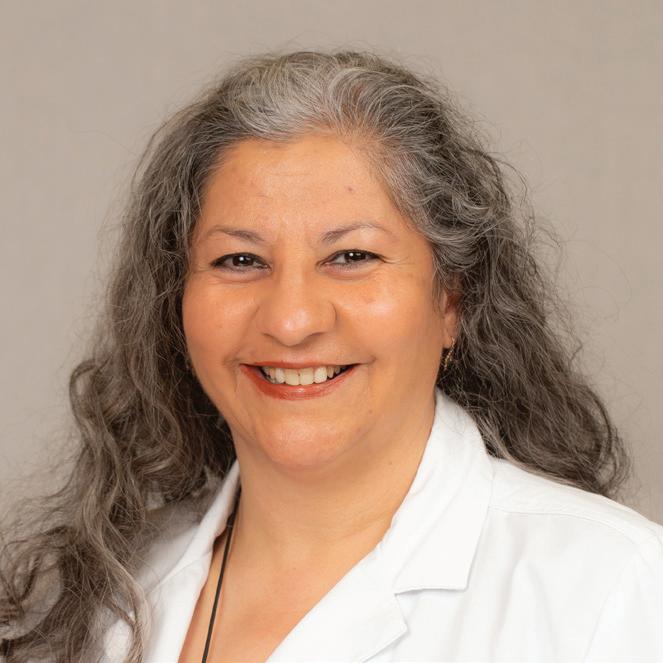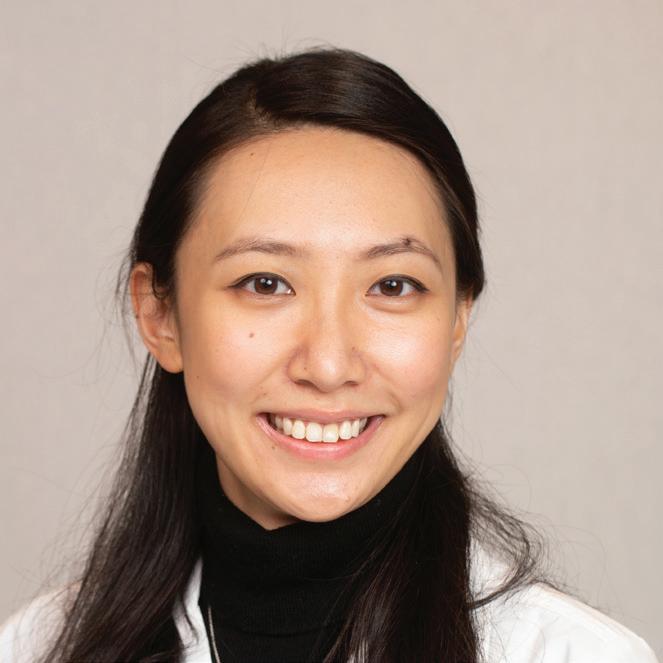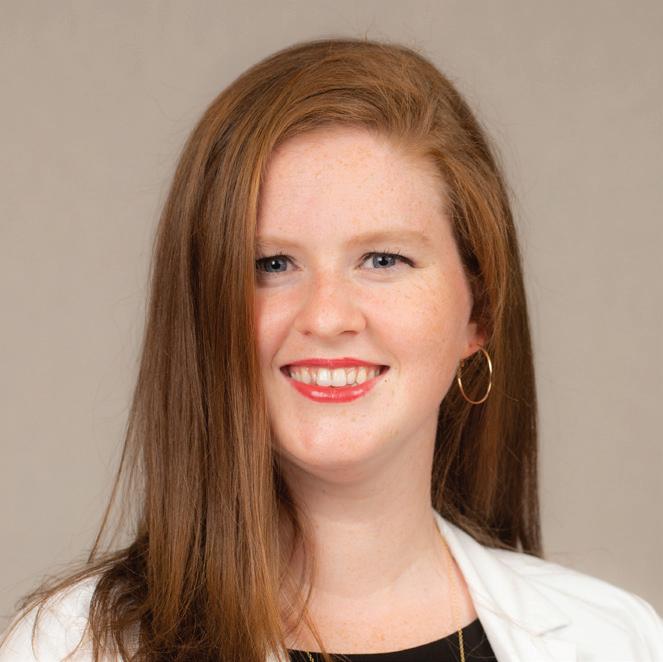
4 minute read
YOUR BABY, YOUR
ANNE LAWSON, MSN, CNM, BSN, RN DEANNA KARAM, DNP, CNM

BATSHEVA BANE, MSN, CNM, BSN
YOUR BABY, YOUR WAY
A DIVERSE TEAM OF CERTIFIED NURSE-MIDWIVES EMBRACES MANY DIFFERENT PREFERENCES IN BIRTH PRACTICES.


DORA FLORES-RYAN, MSN, CNM
The expectant mother had her first two babies in France, where it’s the norm for a professional midwife to attend births. Now in the U.S., she was pregnant with her third.
“This patient was nervous about what her experience giving birth would be in this country,” says Anne Lawson, MSN, CNM, BSN, RN, Director of Midwifery at Jersey City Medical Center (JCMC). “She was so happy when she learned a midwife would be here for her and would be practicing many of the same birth norms she was accustomed to— things like letting her labor naturally without inducing her unless medically necessary, using specific techniques to help manage pain in labor and more.”
Having a birth attended by a midwife is a growing trend in the U.S. but has long been common elsewhere in the world. To meet the needs of all mothers who deliver at JCMC, the medical center has created a robust midwifery program, which currently has seven Certified Nurse-Midwives (CNMs). “We’re unique in that our midwifery staff is diverse, reflecting the breadth of diversity in Jersey City itself,” Lawson says.
That’s important for two reasons. “When a patient sees a healthcare provider who looks like her and speaks her language, she is reassured,” Lawson explains. “However, that doesn’t mean a midwife has to be of the exact same background as the patient in order to provide sensitive and compassionate care. Because we have a diverse staff, we educate each other and expand our perspectives about what all kinds of women want for their birth experiences.”
NEW VIEWS
“I’m a native Spanish speaker, so I can have a fluent conversation with someone who speaks Spanish,” says Dora FloresRyan, MSN, CNM. “That makes a difference, because when a person goes
JACQUELINE LINDER, CNM


JENNY XIAO, CNM SARAH WROCLAWSKI, RN, WHNP-BC, CNM

into a hospital setting, they may feel a lack of control, and it’s important for them to be able to express themselves and be clearly understood.”
Flores-Ryan worked as a Labor and Delivery nurse for 22 years but specialized in midwifery because she was attracted to the idea of caring for a patient before, during and after delivery. “There are some things about Hispanic or Latino culture that I intuitively understand,” she says. “They tend to have very strong familial ties and want to be involved in a loved one’s healthcare—whether that’s coming along to the baby’s checkup or providing support at home after delivery. In some Hispanic cultures, the mother rests and focuses on bonding with her baby for 40 days after delivery. As midwives, we can help patients by facilitating whatever they need to feel supported.”
Batsheva (Eva) Bane, MSN, CNM, BSN, is an Orthodox Jew who grew up in a religious community at the Jersey shore. “Even healthcare providers for patients in other units come to me to ask questions about my community’s cultural and religious practices,” she says. “For example, we don’t use electricity or drive on the Sabbath or on religious holidays. That can affect the admitting process in many ways, such as not going through electronic doors or using elevators.”
As far as pregnancy care and delivery goes, Bane advises providers to be cognizant that prenatal genetic testing may be limited for Orthodox Jews, as may the use of ultrasound. “Also, often the husband or partner will want to minimize exposure and physical touch during the actual labor and birthing process,” Bane says. “It’s important to recognize and respect those preferences.”
Though only a small percentage of JCMC’s maternity patients are Orthodox Jews, Bane says her background helps her work in many ways. “Being from a nondominant religious group makes me seek to understand the values and background of all my patients,” she says. “It gives me a cultural humility that enables me to learn from my colleagues— not only in midwifery, but all the staff at the hospital.”
“I studied anthropology as an undergrad, so human culture is fascinating to me,” says Jenny Xiao, CNM. “I chose midwifery as my life’s work because it allows me to honor different cultural practices in childbirth and women’s health.” While researching postpartum practices, Xiao learned that in many Asian cultures, only warm or hot foods or liquids are considered appropriate during labor or after delivery. She makes sure to ask first before she offers water with ice chips to a woman of Asian background, a practice she has shared with her colleagues.
“The other day, we midwives were all talking about growing up with our different backgrounds and explaining how things are done in specific cultures,” Xiao says. “If you’re open to learning about those things, that’s great for patient care and bonding.”
No matter what the background of the midwife or the patient, however, personal connections are essential. “With every patient, you try to find things you bond over,” Xiao says. “Even if your experiences growing up were completely different, you can always find things that you have in common.”
To make an appointment with a Certified Nurse-Midwife at Jersey City Medical Center (JCMC), call Women’s Health at Grove Street at 201.984.1270. For more information about giving birth at JCMC, visit www.rwjbh.org/maternity.










